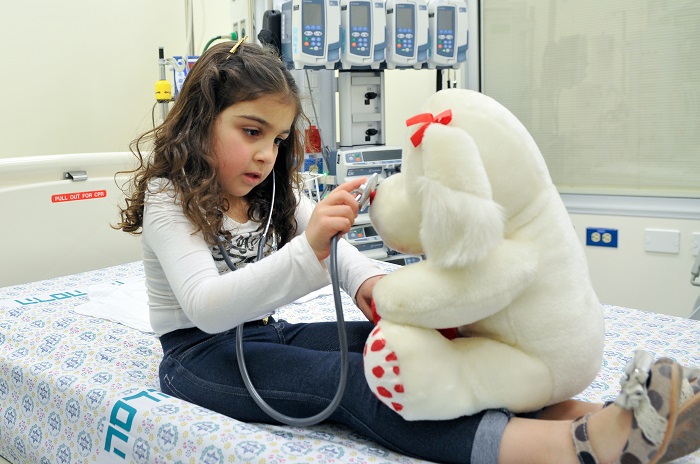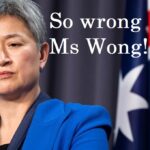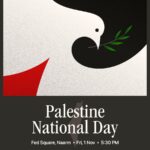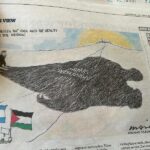In February this year, when Hadassah Australia approached the CEO of World Vision Australia to deliver its annual oration, there was no hint of the controversy that would shortly descend on Tim Costello and his organisation.
Some six months later, news surfaced that the manager of World Vision’s Gaza operation had been arrested by Israeli authorities for allegedly diverting millions of aid-related funds to the Hamas terror group.
The Australian Government was a significant contributor of those funds.
Almost overnight, the ground shifted and the players found themselves facing a very different landscape to the one they previously occupied. Fifty years ago, Martin Luther King Jnr. said: “The ultimate measure of a man is not where he stands in moments of comfort and convenience, but where he stands at times of challenge and controversy.”
This comment from one of the world’s most revered civil rights activists also reflects the dilemma facing Tim, World Vision and Hadassah Australia. Each has to deal with unfolding events in very different ways.
Although the allegation is yet to be tested in court, a small number in the community were prepared to prejudge the outcome. Not only did they decide that Mohammed el-Halabi was guilty, which indeed he may be, but that World Vision and Tim were also guilty – if only by association.
Hadassah Australia was being asked to rethink its decision to invite Rev Costello to address the community. As one writer told our President, Ron Finkel, people should avoid attending the Oration “…to avoid lending any credibility to Tim Costello and his disreputable organisation.”
Disreputable? A similar allegation of complicity with Israel’s enemies was levelled in 2012. Then, World Vision was accused of allowing or least turning a blind eye to, the diversion of funds from a Gaza beneficiary to the Popular Front for the Liberation of Palestine. A painstaking investigation by AUSAid, the Israeli Foreign Ministry and other agencies at the time cleared World Vision of any slack procedures. Consequently, World Vision aid funding in Gaza was resumed and additional protocols for oversight and audit were introduced.
Hamas is nothing if not inventive and devious and they may well have found a way to circumvent those protocols. But was the aid agency guilty of being complicit? Of encouraging el-Halabi to act contrary to its rules and values in order to put Israel at risk from this murderous organisation? I suggest people who think that should attend the Hadassah Oration and ask Tim.
But given our experience with Tim Costello, it’s hard to reconcile any of that with the work that we’re doing together. Many hundreds of thousands of dollars have been committed by World Vision to a Hadassah-driven project to fund a two-year training program for child psychologists from Gaza and the West Bank.
Before people shout down the idea that an iconic Israeli organisation should even consider providing support to Palestinians living in the Territories, it’s worth remembering that since its founding more than 100 years ago, Hadassah Hospital set the agenda for the delivery of healthcare to everyone in need, irrespective of their politics, religion, gender, sexuality or financial status.
Today, every major hospital in Israel adopts a similar philosophy in its dealing with the patient community within and beyond the Green Line. But the template was fashioned by Hadassah, which was nominated in 2005 for the Nobel Peace Prize; the only hospital in the Middle East to be so honoured.
The same naysayers would probably be scratching their heads when they discover that some years ago a cystic fibrosis clinic was established at the Al-Durrah Children’s Hospital in Gaza City, thanks to Professor Eitan Kerem, chairman of paediatrics at Hadassah Hospital and director of the cystic fibrosis clinic at its Mt. Scopus campus.
The clinic didn’t magically appear out of thin air, either. It began after Hadassah invited a group of Gazan medical staff to train at Hadassah before returning to build the health capacity of their communities. That the doctors came was itself a triumph, given the fear and animosity that overwhelmed the visiting group. Prof. Kerem remembers the day of their arrival to begin an intensive Hebrew-language course.
“I regret that I didn’t have a camera to photograph their faces the day they showed up in Israel,” he said. “They looked like they were entering the mouth of a dragon. All they knew about Israel is that we were killers of innocent women and children. Suddenly they walk into Hadassah and see that half our patients are Palestinians. They were in complete shock.”
A member of that first group was Dr Mahmoud Shamali from Gaza’s Eldora Pediatric Hospital. He has been visiting Hadassah every few weeks since to learn how to relieve the suffering of his young patients. Back in Gaza he regularly discusses his caseload with his Israeli counterparts at Hadassah by telephone and Skype, and this professional development is making a significant difference to the children of Gaza. The statistics facing Dr Shamali are sobering: one in 30 Palestinians is a carrier of CF and the disease appears in one in 5,000 live births.
Despite Prof Kerem’s footprint being all over the clinic, he has never visited. Not for want of trying. A journey to Gaza for an Israeli, even one as eminent and caring as him, would not be without its challenges. In short, it may be a one-way trip.
It might also shock people to know that that the nephew of Hamas’ leader in Gaza, Ismail Haniyeh, was admitted in June this year to Hadassah Hospital for an undisclosed illness. It’s not the first time that family members of terror leaders have enjoyed the benefits of Israel’s superior healthcare. Two years ago, Haniyeh’s daughter was transported to Ichilov hospital in Tel Aviv as an emergency case after suffering complications from a procedure originally carried out in Gaza.
While you’re trying to get your head around that, pause for a moment to reflect on Project Rozana, an initiative of Hadassah Australia whose purpose is to build the health capacity of Palestinian communities by training medical and therapeutic staff at Hadassah, and to provide top-up funding for Palestinian children at Hadassah when funding from the Palestinian Authority is exhausted.
Project Rozana has also partnered with Israeli NGO, Road to Recovery. Its purpose is to provide free transport for mainly Palestinian children from checkpoints in Gaza and the West Bank to hospitals in Israel. More than 700 Israelis are volunteer drivers and many more could be enlisted with financial support to pay for fuel. More drivers means more patient transfers, which means more Israelis and Palestinians meet and learn about ‘the other’. There is a very moving video featuring Maestro Zubin Mehta at https://vimeo.com/177978011
Most people, Jews included, have no idea how deep and complex the relationships are between Israelis and Palestinians. Not everyone likes this type of engagement, but who can doubt that getting to know one’s ‘enemy’ is an appropriate step towards reconciliation and peace.
Understanding that might help to appreciate the challenging environment that organisations like World Vision are required to deal with every day.
By all means judge Tim Costello and World Vision, but do it from an informed vantage point and not one clouded by sentiment, emotion and bias. The best opportunity for that, at least in the short term, is to attend the 2016 Annual Hadassah Australia Oration on 2 November at Glen Eira Town Hall. Tim’s topic is ‘Charity in a Time of Terror – from Gaza to Nauru: My World Vision.’ He will be introduced by Robert Goot AM SC, President of the Executive Council of Australian Jewry.
On the night of the Oration, Hadassah’s Tikkun Olam Award will be presented to Professor Hugh Taylor AC, the Founder of Eye Research Australia and President of the International Council of Ophthalmology.
Tickets for the 2016 Annual Hadassah Oration and Tikkun Olam Award are available at www.trybooking.com/226612 or (03) 9272 5600.
Information about Hadassah Australia and its projects can be found at www.hadassahaustralia.org and www.facebook.com/hadassahaustralia
NB: The 2017 Annual Hadassah Oration will be delivered by Michael Kirby AC CMG, former justice of the High Court of Australia, and the Tikkun Olam Award will be presented to Professor Les White AM, Emeritus Professor at the School of Paediatrics at the University of NSW and the inaugural NSW Chief Paediatrician. The award will be presented by Professor Marie Bashir AD CVO, former Governor of NSW. The event will be held in Sydney on 16 March, 2017 at a venue to be advised.
By Michael Krape, Hadassah Australia




